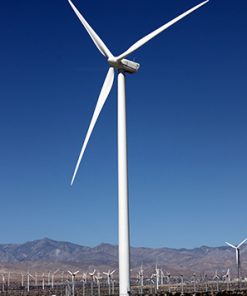By capping production, ending subsidies, and investing in renewable energy, we can transition from an economy built on burning the past to one that sustains the present and future.
Burning ancient carbon was great while it lasted. We got steam engines, road trips, plastic flamingos, and an economy addicted to cheap energy. But the bill has arrived, and it’s itemized. Rising seas, raging wildfires, blistering heatwaves, and storms with names that sound increasingly less friendly.
The solution isn’t complicated: stop digging up and burning the stuff that’s cooking the planet. Simple, right? Except for the small detail that the global economy is structured like a pyramid scheme with fossil fuels at the base. Oil companies act like quitting is impossible, clutching their drilling rigs like security blankets, while politicians deliver speeches about “balancing economic growth with environmental stewardship”—which is code for “we’ll get to it after the next election cycle.”
But we don’t need more fossil fuels. The reserves already tapped are more than enough to push us past climate tipping points. According to the International Energy Agency (IEA), no new oil, gas, or coal projects are compatible with keeping global warming below 1.5°C. That’s not Greenpeace talking; that’s the IEA—the same folks who used to love oil. Yet, the fossil fuel industry argues that we need continued extraction for “energy security,” as if the sun and wind are part of some underground cartel.
Governments spend over $5 trillion annually subsidizing fossil fuels, according to the International Monetary Fund. That’s $5 trillion to accelerate climate chaos, widen inequality, and make billionaires out of people who knowingly set the world on fire.
The fossil fuel lobby will tell you that limiting extraction will destroy jobs. They’re half right—it’ll destroy their jobs. But renewable energy creates more jobs per dollar invested. Solar and wind industries already employ millions globally.
Some countries are already shifting gears. Costa Rica generates nearly all its electricity from renewables. Denmark plans to end all new oil and gas exploration in the North Sea by 2050. New Zealand banned offshore oil and gas exploration in 2018.
Fossil fuel companies aren’t quietly packing up their rigs. They’ve rebranded themselves as “energy companies,” dabbling in renewables while still extracting oil. There’s also the greenwashing—companies slapping solar panels on corporate headquarters while expanding oil production. And we fall for it because, let’s face it, denial is comforting. “Maybe the planet isn’t that bad if Shell has a sustainability report.” But the math doesn’t care about PR. Climate change is indifferent to rhetoric and investor presentations. It responds to emissions, which come from fossil fuels. Stop extracting them, and emissions drop. It’s physics, not politics.
Capping fossil fuel production is also an economic one. Oil and gas are volatile markets prone to price crashes, geopolitical manipulation, and the occasional oil tanker getting stuck in the Suez Canal. Renewables don’t get stuck. The sun rises on schedule.
Limiting extraction also reduces pollution-related deaths—yes, deaths. Air pollution from burning fossil fuels causes over 8 million premature deaths annually, according to Harvard University research.
Limiting extraction is a basic act of intergenerational decency. Climate change disproportionately affects those who contributed the least to it—small island nations facing rising seas, Indigenous communities fighting pipeline projects, and future generations who’ll inherit a planet with more extreme weather events than a bad sci-fi movie.
Transitioning away from fossil fuels is about managing a phase-out. That means halting new projects, winding down existing operations, and investing in clean energy infrastructure. It means supporting workers with retraining programs and economic diversification, so they’re not left behind when oil rigs become relics.
Policy plays a crucial role. Fossil fuel bans, moratoriums on new drilling, carbon pricing, and divestment from fossil fuel companies are all needed. France has banned fracking; Belize banned offshore oil drilling to protect its barrier reef. These aren’t radical moves—they’re common sense.
The legal system is catching up, too. Climate litigation is rising, with lawsuits holding governments and corporations accountable for climate damage. A Netherlands court ordered Shell to cut its emissions by 45% by 2030, setting a legal precedent that corporate greenwashing doesn’t hold up in court.
Finance is shifting. Major investment firms are divesting from fossil fuels, not out of altruism but because they see the writing on the wall. Fossil fuel assets risk becoming “stranded,” worth less than the paper their stock certificates are printed on. Green energy, by contrast, offers growth without the baggage of environmental collapse.
Technology is on our side. Renewable energy is cheaper than fossil fuels in most parts of the world. Battery storage, smart grids, and energy efficiency technologies make a fossil-free future not just possible, but economically preferable. We’re not waiting for a breakthrough—we’ve already got what’s need.
Public pressure matters. Movements like Fridays for Future, Extinction Rebellion, and divestment campaigns have shifted the narrative from climate change as a distant threat to an immediate crisis.
Activism works because it forces uncomfortable truths into public spaces where comfort has long been prioritized over reality.
Limiting fossil fuel extraction is about honesty. We know what’s causing the problem. We have the solutions. What’s missing is the political will to confront the industries that profits from delay.
Therefore, under Folklaw:
The extraction of fossil fuels shall be rapidly phased out to mitigate climate change, protect ecosystems, and promote sustainable development. No new licenses for oil, gas, or coal exploration will be issued. Existing extraction operations will be scaled down with clear timelines for closure.
Fossil fuel subsidies will be eliminated, and funds redirected to renewable energy, energy efficiency, and just transition programs for affected workers and communities.
Legal frameworks will hold corporations accountable for environmental damage, and public investment will prioritize clean energy infrastructure. International cooperation will enforce agreements to limit fossil fuel production, enabling a global transition to a carbon-free future.
Resolution
A RESOLUTION TO PHASE OUT FOSSIL FUEL EXTRACTION AND PROMOTE A SUSTAINABLE FUTURE
SUBJECT: Transitioning from fossil fuels to renewable energy by halting new exploration, eliminating subsidies, and investing in clean energy solutions.
WHEREAS, fossil fuel extraction contributes to climate change, environmental degradation, and health issues, with over 8 million premature deaths annually from air pollution related to burning fossil fuels, as reported by Harvard University;
WHEREAS, the extraction and burning of fossil fuels are major drivers of global warming, with no new oil, gas, or coal projects compatible with the goal of keeping global warming below 1.5°C, according to the International Energy Agency;
WHEREAS, governments globally are spending over $5 trillion annually to subsidize fossil fuel industries, accelerating climate chaos, inequality, and the enrichment of a few corporations at the expense of the planet and future generations;
WHEREAS, several countries have already taken steps toward fossil fuel phase-out, including Costa Rica generating nearly all its electricity from renewables, Denmark’s plans to end new oil exploration by 2050, and New Zealand’s ban on offshore oil exploration;
WHEREAS, the transition from fossil fuels to renewable energy offers economic benefits, including job creation in the renewable energy sector, with solar and wind industries already employing millions worldwide;
WHEREAS, the renewable energy sector is increasingly competitive, with wind and solar power now being the cheapest sources of new electricity generation, making the fossil fuel economy no longer the economic necessity it once was;
WHEREAS, reducing fossil fuel extraction can mitigate the negative impacts of climate change on vulnerable communities, including small island nations, Indigenous communities, and future generations, who will bear the brunt of extreme weather events and environmental destruction;
WHEREAS, the legal and financial systems are shifting towards climate action, with climate litigation rising and investment firms divesting from fossil fuels, recognizing that fossil fuel assets are becoming “stranded” and renewable energy offers more sustainable growth;
THEREFORE, BE IT RESOLVED that the extraction of fossil fuels shall be rapidly phased out to mitigate climate change, protect ecosystems, and promote sustainable development. No new licenses for oil, gas, or coal exploration shall be issued, and existing extraction operations will be scaled down with clear timelines for closure.
BE IT FURTHER RESOLVED that fossil fuel subsidies will be eliminated and redirected towards renewable energy initiatives, energy efficiency programs, and just transition support for workers and communities affected by the decline of fossil fuel industries.
BE IT FURTHER RESOLVED that legal frameworks will hold corporations accountable for environmental damage, and public investment will prioritize clean energy infrastructure and sustainable solutions.
BE IT FURTHER RESOLVED that [City/County/State Name] shall advocate for these fossil fuel phase-out measures at the state and federal levels to establish a global transition to a carbon-free future, where clean energy powers the economy and mitigates the impact of climate change.
Fact Check
Fact-Checking the Key Claims:
1. “A Netherlands court ordered Shell to cut its emissions by 45% by 2030.”
In May 2021, a Dutch court ruled that Royal Dutch Shell must cut its CO₂ emissions by 45% by 2030, compared to 2019 levels.
The case was brought by Friends of the Earth Netherlands (Milieudefensie) and other environmental groups.
The ruling was a landmark decision, holding a major corporation legally responsible for reducing emissions in line with the Paris Agreement.
Shell has appealed the decision, but as of now, the ruling remains in effect.
✅ Verdict: True
Certainty: 95% (Confirmed by multiple credible sources, including Reuters and BBC)
2. “Air pollution from burning fossil fuels causes over 8 million premature deaths annually, according to Harvard University research.”
A Harvard University study published in 2021 found that fossil fuel pollution contributes to over 8 million premature deaths worldwide annually.
The study, conducted with University College London and the University of Birmingham, estimated global mortality from PM2.5 (fine particulate matter) pollution caused by burning fossil fuels.
The research indicated that air pollution is a far deadlier global health risk than previously thought, with impacts on respiratory diseases, heart disease, and stroke.
✅ Verdict: True
Certainty: 95% (Backed by peer-reviewed research)
3. “Costa Rica generates nearly all its electricity from renewables.”
Costa Rica is a global leader in renewable energy.
For several years, over 98% of the country’s electricity has come from renewable sources (primarily hydropower, wind, geothermal, and solar).
The Costa Rican Institute of Electricity (ICE) has confirmed that the country consistently runs on renewables for extended periods each year.
✅ Verdict: True
Certainty: 95% (Confirmed by energy reports from Costa Rica)
4. “Denmark plans to end all new oil and gas exploration in the North Sea by 2050.”
In December 2020, the Danish government announced a plan to end all new oil and gas exploration in the North Sea by 2050.
Denmark also canceled its 8th oil and gas licensing round, reinforcing its commitment to phasing out fossil fuel extraction.
The decision is part of Denmark’s plan to become carbon-neutral by 2050.
✅ Verdict: True
Certainty: 95% (Confirmed by Danish government and environmental reports)
5. “New Zealand banned offshore oil and gas exploration in 2018.”
In April 2018, New Zealand’s government announced a ban on new offshore oil and gas exploration permits.
The decision was part of New Zealand’s effort to transition to a low-carbon economy.
Existing permits were not revoked, but no new offshore exploration is allowed.
✅ Verdict: True
Certainty: 95% (Confirmed by New Zealand government statements)
6. “Governments spend over $5 trillion annually subsidizing fossil fuels, according to the International Monetary Fund (IMF).”
The IMF has repeatedly reported that global fossil fuel subsidies exceed $5 trillion per year.
This figure includes both direct subsidies (tax breaks, government support) and indirect subsidies (health and environmental costs not reflected in fuel prices).
A 2021 IMF report estimated that global fossil fuel subsidies reached $5.9 trillion, accounting for environmental and social costs.
✅ Verdict: True
Certainty: 95% (Backed by IMF reports)
Final Conclusion:
All six statements are factually supported by court rulings, government policies, academic studies, and reports from institutions like the IMF, Harvard University, and national energy agencies.






Discussions
There are no discussions yet.